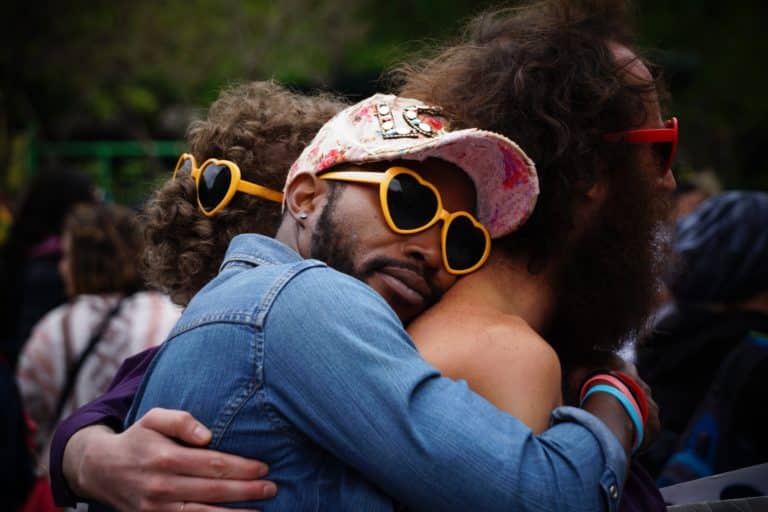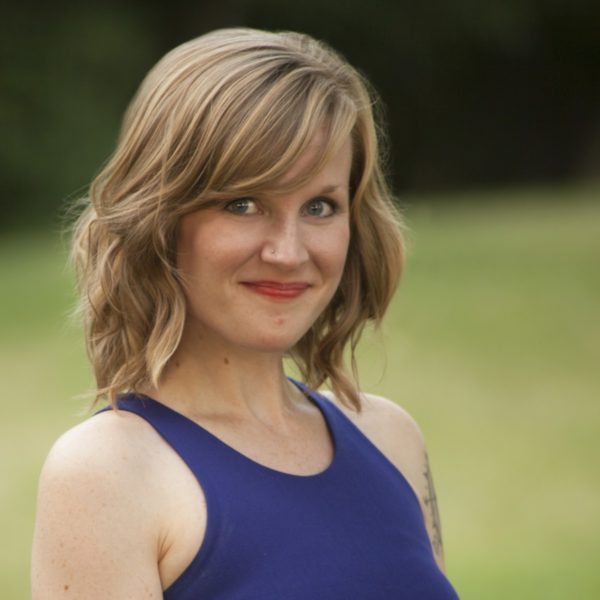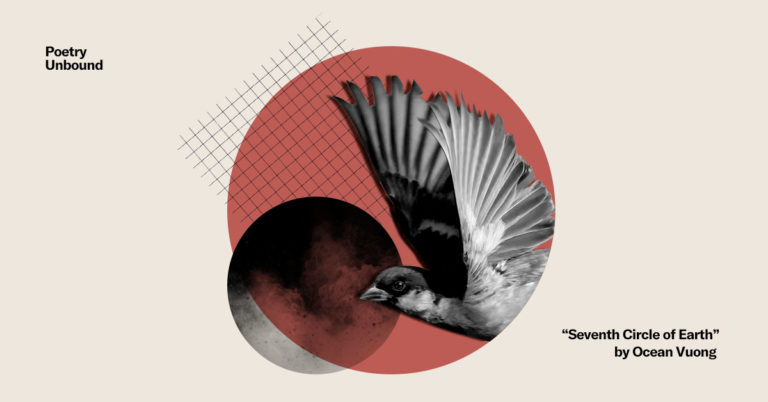
Image by Dimitar Belchev/Unsplash.
The Beautiful and Terrifying Process of Becoming
Autumn rests in the space between endings and beginnings; it is a reminder of the beauty of transition, of process, of becoming.
Unknowns fill many of us with a sense of anxiety, dread, even fear. For those of us who experience the world in this way, our most profound lessons often follow the periods where our only option is to, reluctantly, embrace the discomfort that surrounds us.
Nowhere is process more inevitable, more necessary, and more painful than in the development of identity. Pieces of who we are that we had never questioned suddenly crumble. Aspects of our being that we never knew existed slowly rise to saliency. Our foundation of personhood is deconstructed and rebuilt so drastically that we begin to become unrecognizable to others and even to ourselves.
My work with college students has gradually brought my inner struggle between clarity and uncertainty to a sort of tenuous truce. I find that I use some version of Rainer Maria Rilke’s idea of “living the questions” daily as I witness and take part in their processes of becoming.
“…I would like to beg you dear Sir, as well as I can, to have patience with everything unresolved in your heart and to try to love the questions themselves as if they were locked rooms or books written in a very foreign language. Don’t search for the answers, which could not be given to you now, because you would not be able to live them. And the point is to live everything. Live the questions now. Perhaps then, someday far in the future, you will gradually, without even noticing it, live your way into the answer.”
Identity development does not begin nor end in college, though it can often be most sweeping — and therefore most disconcerting — in those times in which we are thrust into unfamiliar environments, when we begin asking questions we never thought to ask, when the noise of tradition and routine is reduced enough for our inner voices to rise to the surface.
For many students, autumn is a metaphor for college itself. It signals an end to what has been, and who they have been. It is a beginning of discovery, of disenchantment, of doubt, of decisions. As winds change, landscapes shift, and nature takes a deep breath before the silent stillness of winter, students engage in the profound internal work of asking questions that do not yet have answers: Who am I? Why am I here? What will I do, and what impact will I have on the world around me?
As the school year begins, students and parents alike are also asking these questions of offices like mine. As I engage in this process of self-reflection, I look back on the history of organized offices dedicated to the support and development of lesbian, gay, bisexual, transgender, and queer (LGBTQ) students. This history formally begins in 1971 (though the groundwork began long before) at the University of Michigan, where student advocacy eventually resulted in the formation of the first such office, now called the Spectrum Center.

Today, the legacy of those who spearheaded this early work lives on through offices like the Center for Social Justice Education and LGBT Communities at Rutgers, the Stonewall Center at the University of Massachusetts in Amherst, the Queer Resource Center at Portland State University. My own office owes its existence to those who pioneered these efforts.
In the dynamic work of college student affairs, our purposes and missions, though grounded in history, have necessarily responded and shifted to the needs of our students. Many of us engage in advocacy, leading changes in policy and practice to promote greater inclusion at our campuses. Some of us educate our communities of students, faculty, and administrators on gender and sexuality. Often, we are most visible when we work to raise the profile of LGBTQ communities on our campuses through programs, initiatives, and awareness campaigns.
But ultimately, I have found that our work has the most impact in the moments that we become a part of our students’ journeys of development. Some are questioning their own genders or sexualities; some question what gender or sexuality is altogether. Some are in the process of learning what it means to act in solidarity for a community to which they do not belong. Some are beginning to imagine what inclusion looks like, and some are wrestling with how to operationalize their inner values with friends and family members with whom they disagree.
In all these cases, students dwell in the space between endings and beginnings. They are demonstrably different from when they started, and, at the same time, the versions of themselves that they will someday become are distant, hazy, uncertain.

My students, regardless of their identities, are in the beautiful and terrifying process that is becoming. I have the great honor of intersecting with their journeys, sometimes in small and nearly imperceptible ways, in the work that I do each day. And as I do this, I myself am reminded of the journey still ahead of me.
I feel Rilke’s call to “live everything” as I facilitate discussions with fraternity and sorority members about inclusion within their chapters. I let the gentle reminder to “have patience with what is unresolved” sink in as I counsel students seeking to make known their inner identity to their friends and family members. I practice “loving the questions” as I advise student leaders on managing conflict within their organizations.
This is the work of LGBTQ college student centers, work that is all at once exhausting, profound, challenging, ongoing. It is the work of holding the tension of beginnings and endings, questions and answers, growth and loss. It is the work of witnessing and taking part in the small moments that form our self-concepts and shape our sense of purpose and meaning.
As autumn is upon us, I breathe in the rush of new energy that the beginning of the school year brings. I unpack the tools that I stowed away in preparation for this season. And I let out a swell of gratitude for the vibrant change I will be privileged to witness.


